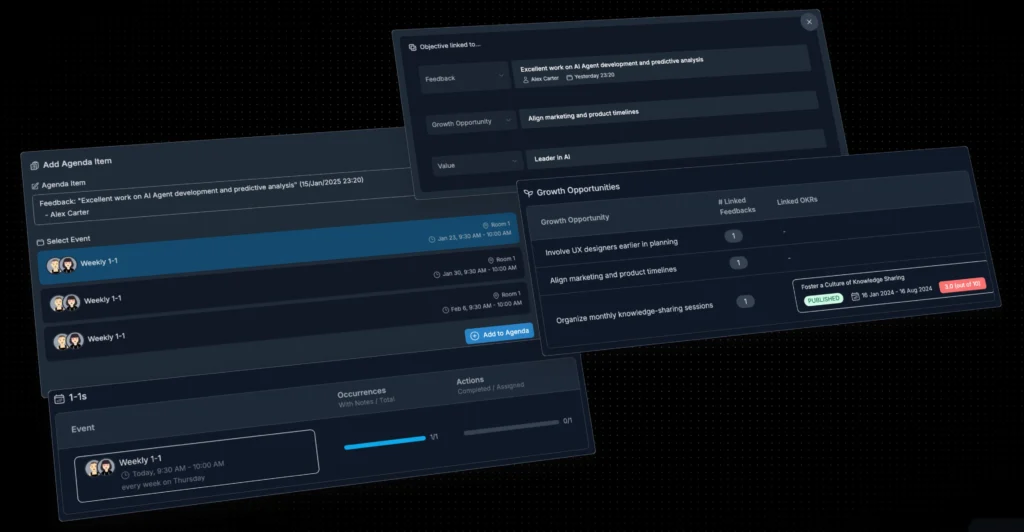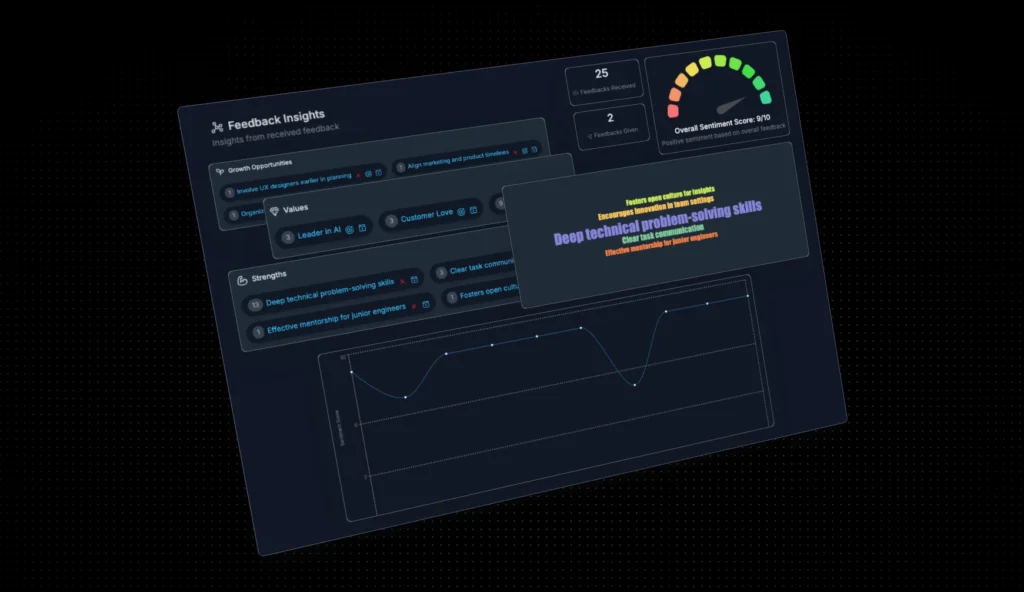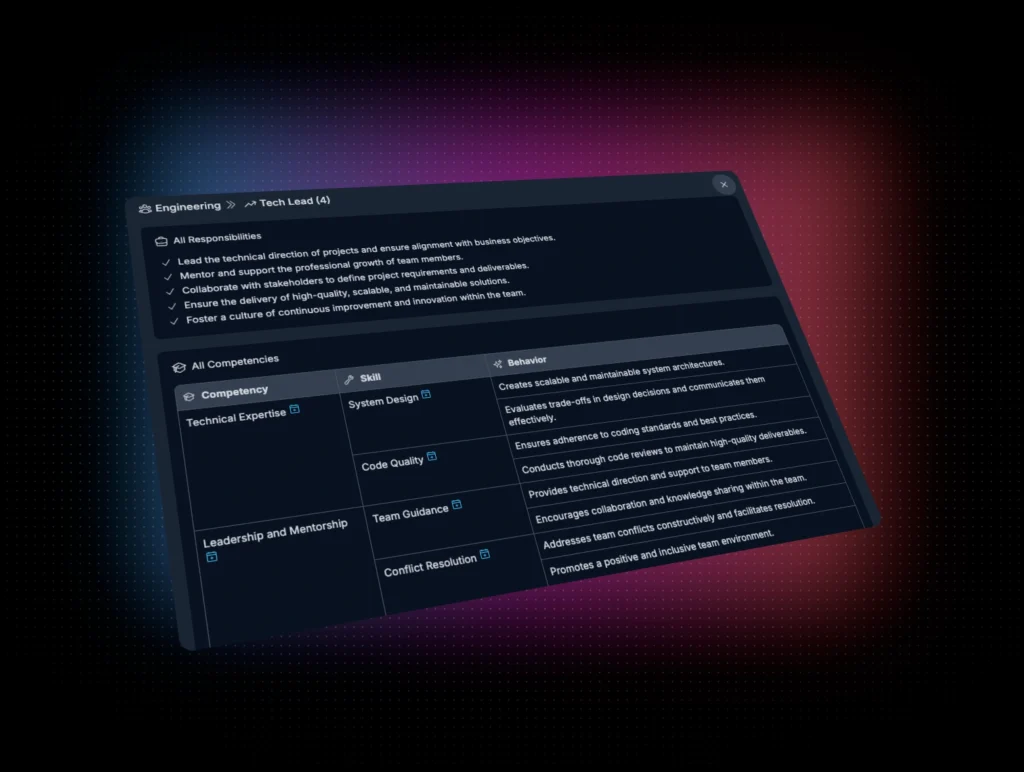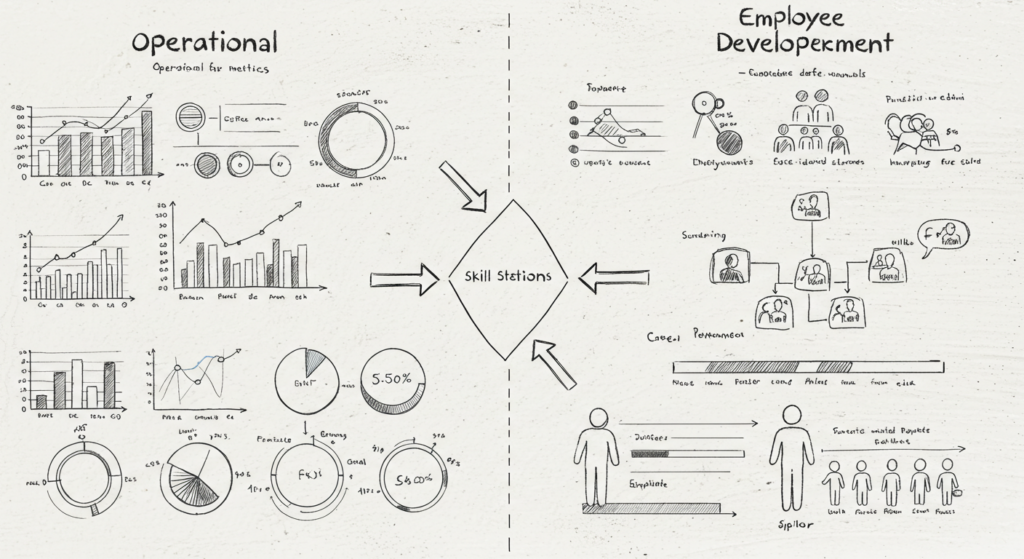Operational metrics are more than just numbers
Metrics are often viewed as cold, clinical figures, but they tell a story. For example:
- Customer satisfaction scores: They reflect the quality of service, but they also hint at the people behind the scenes—those working to resolve tickets, refine processes, or improve the customer experience.
- Sales figures: These don’t just measure revenue; they showcase how well individuals are executing strategies, building relationships, and closing deals.
- Error rates: Sure, they highlight inefficiencies, but they also point to areas where skills or training might be lacking.
The point is, metrics don’t just track what’s working (or not); they highlight the contributions, challenges, and growth opportunities within your team. When viewed through this lens, metrics become more than numbers—they become tools for understanding and developing talent.
Aligning metrics with career progression
Here’s the thing about career growth: it shouldn’t happen in a vacuum. To be meaningful, career progression must align with the company’s objectives. And operational metrics are the bridge that makes this possible.
Consider this:
- An engineer improving code efficiency directly impacts product delivery timelines. Linking this metric to their career growth reinforces its importance while rewarding their contribution.
- A customer success manager reducing churn contributes to revenue stability. Acknowledging this metric in performance reviews shows how their work drives business success.
When employees see how their performance metrics connect to the company’s goals—and how achieving them fuels their career progression—it creates alignment, motivation, and a shared sense of purpose.

Data transparency: the key to fair career frameworks
Data isn’t just useful for measuring performance; it’s critical for creating transparency. Employees want to know what’s expected of them and how they can grow. Operational metrics provide the foundation for clear, data-driven career frameworks.
Imagine a framework where employees can see:
- What skills and achievements are needed for promotion: For instance, demonstrating leadership on key projects or improving specific metrics over time.
- How their contributions are measured: Knowing that their work is evaluated based on objective metrics, not subjective impressions.
- Where they stand today and where they can go next: Clear paths mapped out with real data, leaving no room for ambiguity.
This level of clarity doesn’t just drive performance; it builds trust. Employees who know what’s expected of them—and see a fair, transparent system—are more likely to stay engaged and committed.

How to build a metrics-driven career framework
Creating a framework that links metrics to career progression doesn’t have to be complicated. Here’s a roadmap to get started:
- Identify the right metrics: Focus on metrics that truly matter to your business and reflect individual contributions, not just team outcomes.
- Map metrics to roles and goals: Show employees how improving specific metrics aligns with both their career aspirations and company success.
- Be transparent and specific: Create a system that outlines clear expectations, so there’s no guesswork involved in how progress is measured.
- Offer tools and training: Provide resources to help employees hit their targets, whether it’s mentorship, skill-building workshops, or data dashboards.
- Review and refine regularly: Keep the framework dynamic, evolving it based on feedback and changing business needs.

Why this approach works for modern organizations
In today’s fast-paced environment, operational efficiency and career growth can’t live in silos. By integrating metrics with career progression, you achieve two things:
- Stronger alignment: Employees focus on what truly matters, driving both their careers and the company forward.
- Data-driven fairness: Career decisions are backed by objective data, reducing bias and creating trust in the system.
For technology companies and fast-growing organizations, this approach isn’t just effective—it’s essential. Metrics-driven frameworks help scale teams, retain top talent, and build cultures where performance and growth go hand in hand.
From numbers to growth stories
Operational metrics don’t just measure success—they shape it. When linked to career progression, they turn into powerful tools for aligning personal and organizational goals.
This isn’t about turning employees into numbers. It’s about using data to tell the story of their contributions, recognize their achievements, and guide them toward what’s next. The result? A workplace where growth isn’t just possible—it’s inevitable.



